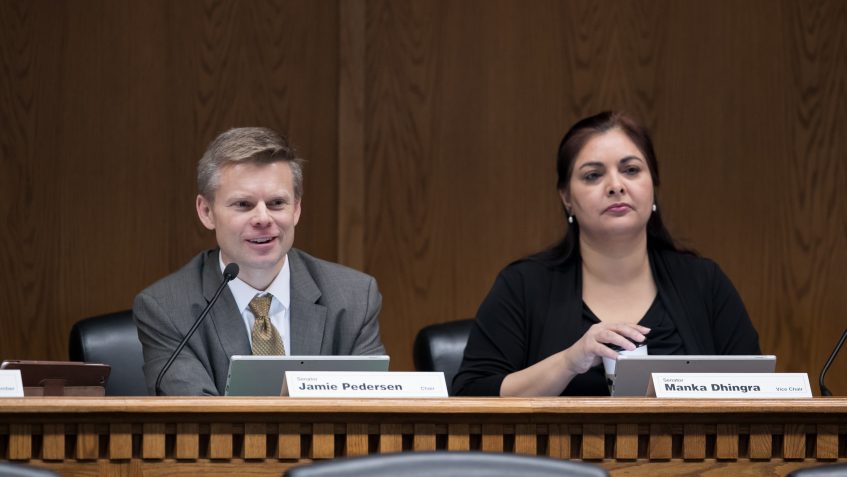Sen. Manka Dhingra (D-Redmond), chair of the Senate Behavioral Health Subcommittee and vice chair of the Senate Law & Justice Committee, and Sen. Jamie Pedersen (D-Seattle), chair of the Senate Law & Justice Committee, today released the following statement on the implementation of HB 1310, which goes into effect on Sunday, July 25:
“The public outcry over a series of high-profile deaths in communities of color led in the 2021 legislative session to the most significant new police accountability measures in our state’s history.
“We worked closely with communities that have suffered, as well as with law enforcement, to pass legislation that will help keep communities safe by holding officers to the high ethical standards that Washingtonians expect and deserve.
“These measures will provide more tools and support to the vast majority of officers who are already living up to these high standards.
“Central to changing how law enforcement interacts with the community is establishing a new statewide standard for the use of force. That standard, codified in HB 1310, directs officers to begin with de-escalation and to use force only when truly necessary.
“The Senate has been working for years to ensure that people having a behavioral health crisis receive the proper outreach to help them get treatment. To that end, the Involuntary Treatment Act authorizes law enforcement to take into emergency custody people who have been determined by a Designated Crisis Responder to present an imminent likelihood of serious harm. The purpose of this civil commitment is to help them get the treatment they need and deserve.
“Law enforcement officers have always had the discretion to choose how to respond to calls for behavioral health crises, and that remains the case. HB 1310 does not remove that discretion or limit the authorization to take people into custody if needed. Neither does it remove the ethical duty of law enforcement to help people in crisis.
“As the guardians of our communities, law enforcement officers have a responsibility to Washingtonians to respond to situations that present a danger to public safety. Many officers are continuing to show up when called and serve as those guardians.
“For the last few years, our response to behavioral health crises has been forged through partnerships between law enforcement, Designated Crisis Responders, treatment providers, people with lived experience, and family members—all working together to make sure that patients are connected to treatment that can help.
“The Legislature and all these partners have been building a system in which teams including law enforcement and treatment experts respond together. This co-responder model is due for increased funding and support as our state prepares to implement the new 988 crisis intervention hotline by July of 2022.
“Law enforcement has a crucial role to play. We would like to thank the many officers who have been undergoing specialized training, the departments that have implemented co-responder teams and crisis mobile teams, and everyone who has been working toward a new model of policing that will better serve people in crisis, and better protect our whole communities.”





